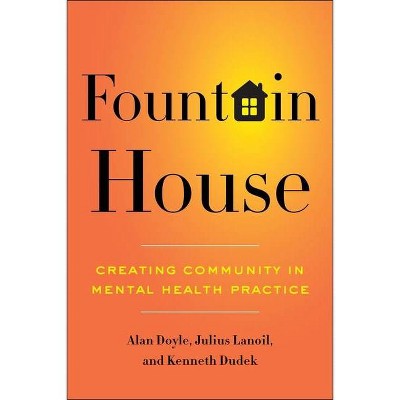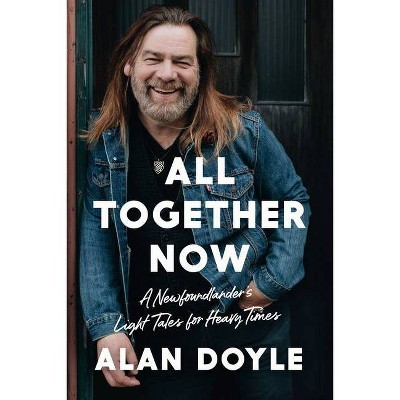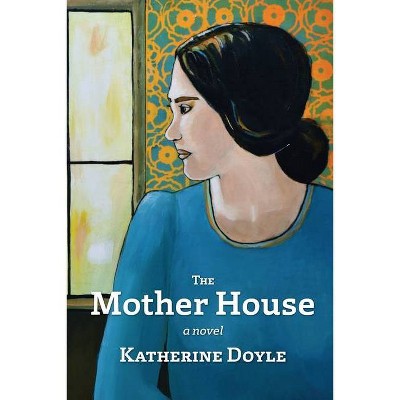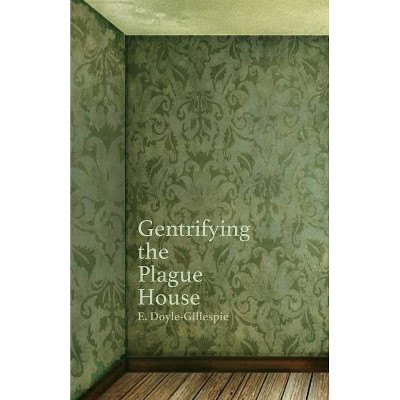Fountain House - by Alan Doyle & Julius Lanoil & Kenneth Dudek (Hardcover)

Similar Products
Products of same category from the store
AllProduct info
<p/><br></br><p><b> Book Synopsis </b></p></br></br><p>Often people with mental illness feel alone in society, with no place to go and little hope. Their isolation can be further perpetuated through typical approaches to treatment, such as case management and psychotherapy.</p><p>Since 1948, the Fountain House "working community" has worked to address the isolation and social stigmatization faced by people with mental illness. This volume describes in detail its evidence-based, cost-effective, and replicable model, which produces substantive outcomes in employment, schooling, housing, and general wellness. Through an emphasis on personal choice, professional and patient collaboration, and, most important, "the need to be needed," Fountain House demonstrates that people with serious mental illness can not only live but also contribute and thrive in society.</p><p>The authors also explore the evolution of Fountain House practice, which is grounded in social work and psychiatry and informs current strength-based and recovery methodologies. Its inherent humanity, social inclusivity, message of personal empowerment, and innovation--a unique approach on behalf of people suffering from mental illness--have led to the paradigm's worldwide adoption.</p><p/><br></br><p><b> Review Quotes </b></p></br></br><br><i>Fountain House</i> is a book long due.--Metapsychology<br><br>Fountain House has been transforming the lives of seriously mentally ill people for more than a half century. until now, however, little detailed analysis of the key ingredients that explain why its approach has been such a success has been done. Alan Doyle, together with his colleagues Kenneth J. Dudek and Julius Lanoil, fills that gap with a wonderfully readable account of the Fountain House model of social practice. The approach has at its heart the tenets of milieu therapy, yet builds upon these to create a physical and emotional environment in which people feel needed and empowered through coaching relationships with staff emphasizing strengths, choice, and self-determination. This is a book that should be read by all mental health practitioners and is essential for anyone who wants to understand community as a therapeutic methodology.--Thomas Jamieson-Craig, president, World Association for Social Psychiatry<br><br>In this important book, the authors explore John Beard's unique contribution to Fountain House, showing the reader how the idea of therapeutic community works and thrives within this landmark organization. The book makes a significant contribution to the literature on clubhouse, drop-in, and milieu-treatment centers. In their formulation of 'working community, ' the authors give shape and definition to what it means for people in recovery to be in and with community, a deeply human concern that has been under-theorized in contemporary clinical literature.--Matthew Spitzmueller, University of Chicago<br><br>The concept of a community--working and living together--as therapeutic milieu for those with mental illness is one that has stood the test of time. After falling out of fashion for a period with the demise of the state hospital system, therapeutic communities are now coming back, providing not only the medications and therapies crucial for treating mental illness but also a sense of belonging ('the need to be needed') and identity which are equally vital. For nearly a century, Fountain House has been at the forefront here, and its model has influenced institutions around the world. This book, rooted in a historical perspective, illuminates the principles and practices that have guided Fountain House since its beginnings. It is a document, above all, of hope.--Oliver Sacks<br><p/><br></br><p><b> About the Author </b></p></br></br>Alan Doyle is the director of the Fountain House Institute. He is a former assistant director for occupational education for a regional school system on Long Island, has served as the federal liaison for the Massachusetts State Education Commissioner, and attended Fordham University and the Harvard Graduate School of Education. <p/>Julius Lanoil is a psychotherapist and wellness consultant at Fountain House and a certified medical rehabilitation director. He has served as assistant director of Fountain House and has been assistant professor in the Department of Psychiatry and director of psychiatric rehabilitation at the University of Medicine and Dentistry of New Jersey. While there, he created The Club, a replication of the Fountain House model, and SERV, a statewide New Jersey housing program. He is also a cofounder of the Psychiatric Rehabilitation Association and the first coeditor of its journal. <p/>Kenneth J. Dudek is the current president and executive director of Fountain House, New York. His career spans three decades in community mental health, from social worker to director of community support for the State of Massachusetts. His latest efforts at treatment? innovation include programs in supported education, wellness, and community psychiatry. He received his MSW from Boston University.
Price History
Price Archive shows prices from various stores, lets you see history and find the cheapest. There is no actual sale on the website. For all support, inquiry and suggestion messages communication@pricearchive.us




















